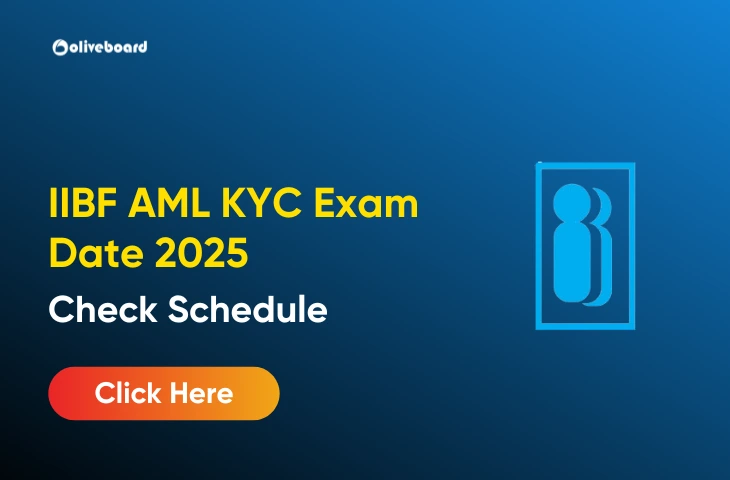RBI Guidelines Regarding AML
RBI Guidelines Regarding AML: Understanding the RBI Guidelines Regarding AML (Anti-Money Laundering) is essential for financial institutions and individuals working in banking, compliance, and risk management. This article provides a comprehensive overview of these guidelines, the importance of KYC (Know Your Customer) in combating money laundering, and details about AML KYC certification.
What is Anti-Money Laundering (AML)?
Anti-Money Laundering refers to a set of procedures, laws, and regulations designed to prevent criminals from disguising illegally obtained funds as legitimate income. The Reserve Bank of India (RBI) plays a critical role in enforcing AML measures within the Indian financial system.
AML KYC – Complete Course
The AML KYC Complete Course offers over 30 live, interactive sessions that thoroughly cover the entire KYC AML syllabus, following the latest exam pattern. It includes 150+ multiple-choice questions (MCQs) and case studies to help you focus on key topics. You will also get downloadable PDF notes for easy learning and quick revision. The course provides a combination of live classes, recorded lectures, and PDF notes. For your convenience, live sessions are held during non-banking hours, either early in the morning or late in the evening. Additionally, you can access recorded lectures and PDF notes 24/7, allowing you to learn anytime and anywhere. Click the link below to check all the details regarding the AML KYC course.

Important Objectives of RBI Guidelines on AML
The RBI’s AML guidelines aim to:
- Prevent money laundering activities.
- Strengthen financial institutions against misuse by criminals.
- Enhance transparency in financial transactions.
- Comply with international AML standards.
Core Components of RBI’s AML Guidelines
The RBI’s AML framework is built on three core components:
- Customer Due Diligence (CDD):
- Verifying customer identity.
- Understanding the nature of the customer’s business.
- Monitoring Transactions:
- Identifying unusual or suspicious activities.
- Reporting such activities to the Financial Intelligence Unit-India (FIU-IND).
- Record Keeping:
- Maintaining detailed records of all transactions.
- Ensuring these records are accessible for audits and investigations.
Importance of KYC in AML
Know Your Customer (KYC) is a critical element in the AML process. It involves verifying the identity of customers to:
- Prevent fraudulent activities.
- Assess and mitigate risks of money laundering.
- Ensure compliance with legal and regulatory requirements.
Important Elements of KYC:
- Customer Identification: Collecting accurate information about the customer.
- Risk Assessment: Evaluating the customer’s risk profile based on their financial behavior.
- Ongoing Monitoring: Regularly updating customer information and monitoring transactions.
RBI Mandates for AML Compliance
The RBI mandates all regulated entities, such as banks and non-banking financial companies (NBFCs), to comply with AML guidelines. Key mandates include:
- Implementing a robust AML policy.
- Training employees on AML procedures.
- Establishing a designated officer for AML compliance.
- Conducting regular audits to ensure adherence to AML norms.
AML KYC Certification
AML KYC Certification is a professional credential that enhances an individual’s understanding of AML regulations and KYC processes. It is particularly beneficial for professionals in banking, compliance, and finance.
Benefits of AML KYC Certification:
- Improved knowledge of AML laws and practices.
- Increased career opportunities in compliance and risk management.
- Enhanced ability to detect and prevent money laundering activities.
How to Obtain AML KYC Certification:
- Enroll in a Recognized Course: Choose a reputed institution offering AML KYC training.
- Complete Training Modules: Learn about AML laws, KYC processes, and risk management techniques.
- Pass the Examination: Demonstrate your knowledge by clearing the certification exam.
Institutions Offering AML KYC Certification:
- Indian Institute of Banking and Finance (IIBF)
- National Institute of Securities Markets (NISM)
- Other recognized global organizations like ACAMS
Challenges in AML Implementation
Despite stringent guidelines, financial institutions face challenges in AML implementation:
- Evolving tactics used by money launderers.
- High costs of compliance.
- Integration of advanced technology for transaction monitoring.
How to Overcome These Challenges:
- Invest in advanced analytics and AI-based monitoring systems.
- Regularly update AML policies to address emerging risks.
- Conduct continuous employee training.
Conclusion
The RBI Guidelines Regarding AML serve as a robust framework to safeguard the financial system from the risks of money laundering. By adhering to these guidelines and obtaining AML KYC certification, professionals and institutions can play a crucial role in combating financial crimes and ensuring a transparent financial ecosystem.
RBI Guidelines Regarding AML – FAQs
Ans. RBI guidelines on AML outline measures to prevent money laundering in financial transactions.
Ans. They ensure financial institutions combat money laundering and maintain system integrity.
Ans. It is a professional credential validating expertise in anti-money laundering and Know Your Customer practices.
Ans. Banks, financial institutions, and intermediaries must adhere to RBI’s AML directives.
Ans. The goal is to detect, prevent, and report suspicious financial activities.
Ans. KYC helps verify customer identities to prevent illicit financial activities.
- NDPS Act 1985: Objectives, Provisions and Enforcement

- Prevention of Money Laundering Act 2002 Overview and Key Provisions

- Foreign Exchange Management Act 1999 (FEMA) Key Provisions

- Legislation Against Money Laundering, AML KYC Certification

- IIBF AML KYC Exam Date 2025, Check Schedule

- IIBF AML KYC Certification, Check Complete Details and Benefits


Hello there! I’m a dedicated Government Job aspirant turned passionate writer & content marketer. My blogs are a one-stop destination for accurate and comprehensive information on exam categories like Regulatory Bodies, Banking, SSC, State PSCs, and more. I am on a mission to provide you with all the details you need, conveniently in one place. When I am not writing and marketing, you will find me happily experimenting in the kitchen, cooking up delightful treats. Join me on this journey of knowledge and flavors!
